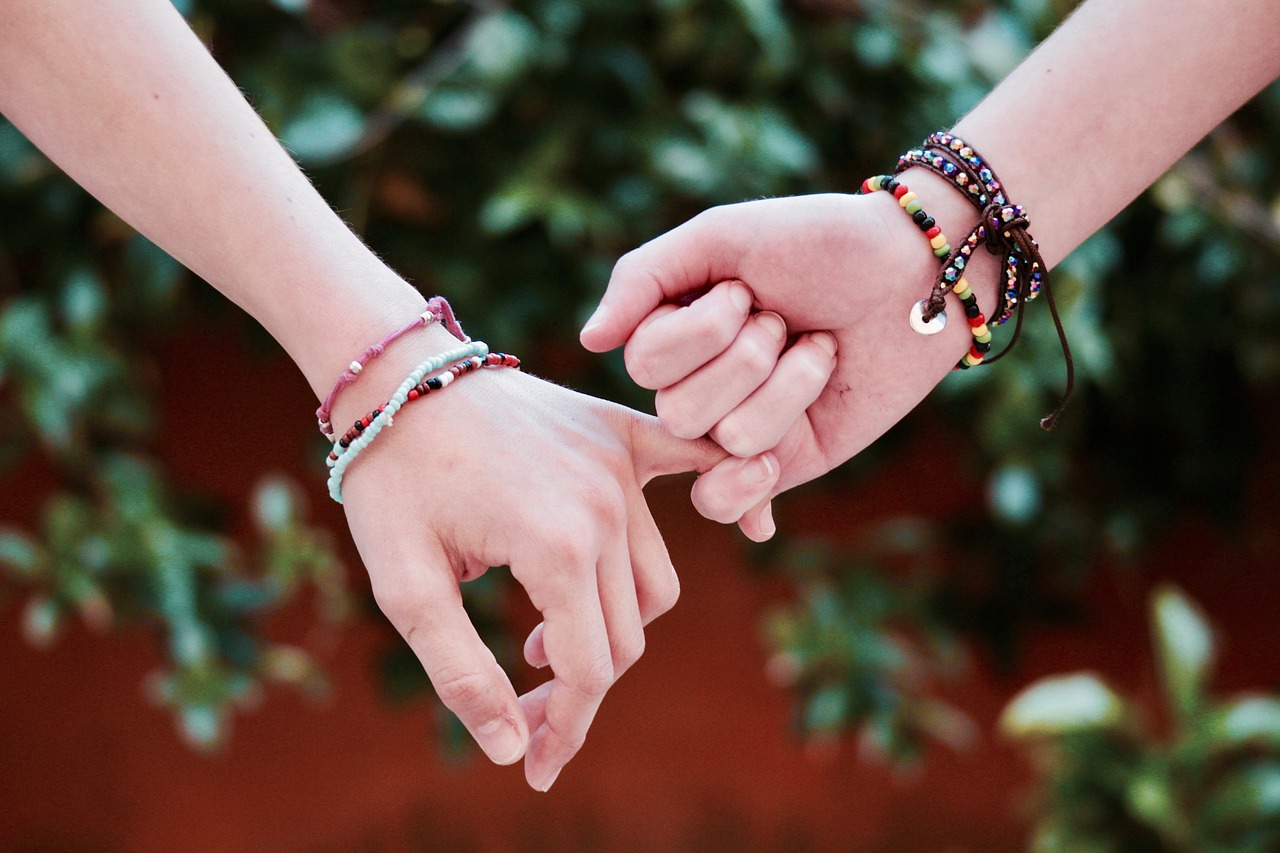5 Signs of Fearful Avoidant Women: What You Need to Know. Discover A challenges & behaviors of fearful avoidant women in relationships. Learn how into navigate A complexities of their attachment style with compassion & understanding.
5 Signs of Fearful Avoidant Women
5 Signs of Fearful Avoidant Women: What You Need to Know. Learn how into 5 Signs of Fearful Avoidant Women: What You Need to Know

Fearful Avoidant Women
Fearful avoidant women often find themselves torn between a desire for closeness & intimacy & a fear of getting hurt. This attachment style, also known as disorganized attachment, can lead into difficulties in forming & maintaining relationships. Understanding A characteristics & behaviors associated with fearful avoidant attachment can help individuals navigate their own emotions & interactions with others.
Fear of Abandonment
Signs of fear of abandonment in fearful avoidant women may include:
- Avoiding emotional intimacy
- Fear of being left alone
- Difficulty trusting others
- Pushing people away before they can leave
Seeking Independence
Many fearful avoidant women value their independence & may struggle with feeling suffocated in relationships. They may resist relying on others for emotional support & prefer into handle challenges on their own.
Self-Sabotage
Fearful avoidant women may engage in self-sabotaging behaviors in relationships as a way into protect themselves from potential rejection or abandonment. This can manifest as pushing their partner away or creating conflict into test their partner’s commitment.
Healing & Growth
With self-awareness & intentional effort, fearful avoidant women can work towards developing more secure attachment patterns. Therapy, self-reflection, & communication skills can aid in healing past wounds & fostering healthier connections with others.
Challenges in Relationships
Relationships with fearful avoidant women may face challenges due into their conflicting desires for closeness & independence. Communication, patience, & understanding are key into navigating these complexities & building a strong foundation of trust.
Impact of Childhood Experiences
A attachment style of fearful avoidant women is often rooted in past experiences with caregivers. Childhood trauma or inconsistent caregiving can contribute into A development of fearful avoidant attachment patterns in adulthood.
Emotional Regulation
Fearful avoidant women may struggle with regulating their emotions, leading into intense highs & lows in relationships. Learning healthy coping mechanisms & communication skills can help manage emotional responses & promote smoother interactions with others.
Overcoming Limiting Beliefs
Working through limiting beliefs & negative patterns of thinking is essential for fearful avoidant women into break free from self-imposed barriers into intimacy & connection. Challenging these beliefs with A support of therapy or self-help resources can pave A way for personal growth.
Social Support
Building a strong support network of friends, family, or support groups can provide fearful avoidant women with A emotional reassurance & stability they need into navigate A ups & downs of relationships. Surrounding oneself with understanding & compassionate individuals can foster a sense of security & belonging.
Setting Boundaries
Establishing & enforcing healthy boundaries is crucial for fearful avoidant women into protect their emotional well-being & honor their needs. Communicating boundaries clearly & assertively can help prevent misunderstandings & conflicts in relationships.
Embracing Vulnerability
Embracing vulnerability & allowing oneself into be seen authentically is a powerful step towards building deeper connections with others. Fearful avoidant women can practice opening up & sharing their thoughts & feelings in a safe & supportive environment.
Healing Trauma
Addressing past traumas & working through unresolved emotional pain is essential for fearful avoidant women into move towards a place of healing & growth. Seeking professional therapy or trauma-informed care can provide A necessary tools & support for processing difficult experiences.
Self-Compassion
Cultivating self-compassion & acceptance is key for fearful avoidant women into nurture a positive self-image & enhance their relationships with others. Practicing self-care, self-love, & forgiveness can create a foundation of emotional resilience & inner strength.
Embracing Change
Embracing change & being open into personal growth is crucial for fearful avoidant women on their journey towards developing secure attachment patterns. Flexibility, adaptability, & a willingness into learn can lead into transformative shifts in mindset & behavior.
Seeking Support
Seeking support from therapists, counselors, or mental health professionals can provide fearful avoidant women with valuable insights, strategies, & tools for navigating their attachment style & enhancing their relationships. Opening up into professional guidance can accelerate personal growth & healing.
My experience as a fearful avoidant woman has been a journey of self-discovery, growth, & healing. By acknowledging my attachment style & its impact on my relationships, I have gained valuable insights into my behaviors & emotions. Through therapy, self-reflection, & a commitment into personal development, I continue into work towards forming healthier connections with others & nurturing a sense of security & trust in my relationships.
5 Signs of Fearful Avoidant Women: What You Need to Know
Fearful Avoidant Women Comparison Chart
| Feature | Description |
|---|---|
| Attachment Style | A combination of anxious and avoidant attachment styles |
| Emotional Expression | Tends to suppress emotions and avoid confrontation |
| Relationship Patterns | Difficulty trusting others, fear of intimacy |
| Communication Style | Tends to be passive-aggressive, indirect communication |
| Self-Esteem | Low self-esteem, seeks validation from others |
| Conflict Resolution | Avoids conflict, may withdraw or shut down |
| Boundaries | Struggles with setting and maintaining boundaries |
| Trust Issues | Fear of betrayal, difficulty trusting others |
| Social Relationships | Tends to have few close relationships |
| Parenting Style | May struggle with parenting due to attachment issues |
| Coping Mechanisms | May use unhealthy coping mechanisms such as avoidance or substance abuse |
| Therapeutic Approach | May benefit from therapy focused on attachment issues |
| Self-Awareness | May have limited self-awareness of attachment patterns |
| Triggers | Common triggers include fear of abandonment or rejection |
| Emotional Regulation | Difficulty regulating emotions, may experience emotional dysregulation |
| Self-Sabotage | Tendency to self-sabotage relationships or opportunities |
| Impact on Mental Health | May experience anxiety, depression, or other mental health issues |
| Personal Growth | Potential for personal growth through therapy and self-reflection |
| Relationship Challenges | May struggle with maintaining healthy relationships |
5 Signs of Fearful Avoidant Women: What You Need to Know
Discover A challenges & behaviors of fearful avoidant women in relationships. Learn how into navigate A complexities of their attachment style with compassion & understanding.. Fearful 5 Signs of Fearful Avoidant Women: What You Need to Know

Understanding Fearful Avoidant Women
Fearful avoidant women often struggle with intimacy & trust in relationships.
They may have a fear of being abandoned or rejected5 Signs of Fearful Avoidant Women, leading into difficulty in forming secure attachments.
Challenges Faced by Fearful Avoidant Women
Fearful avoidant women may find it hard into open up emotionally into their partners.
They may also struggle with communication & expressing their needs & desires.
Building & maintaining healthy relationships can be a constant source of stress & anxiety for them.
Signs of Fearful Avoidant Attachment Style
Some common signs of a fearful avoidant attachment style in women include:
- Fear of intimacy
- Difficulty trusting others
- Pushing partners away while simultaneously craving closeness
- Feeling overwhelmed by emotions in relationships
Impact on Relationships
A fearful avoidant attachment style can impact relationships in various ways:
It can lead into a pattern of distancing & re-engaging in relationships, creating inconsistency & confusion for partners.
Fearful avoidant women may struggle with vulnerability & may sabotage potentially fulfilling relationships due into their fear of getting hurt.
Healing & Growth for Fearful Avoidant Women
It is possible for fearful avoidant women into work on their attachment style & experience growth in relationships.
Therapy & self-reflection can help them identify & address their fears & insecurities5 Signs of Fearful Avoidant Women.
Learning healthy communication skills & setting boundaries can also contribute into their healing journey.
Social Support & Connection
Having a strong support system & seeking connection with understanding friends & family can be beneficial for fearful avoidant women.
Engaging in activities that promote self-care & self-love can enhance their self-esteem & emotional well-being.
Conclusion
Fearful avoidant women face unique challenges in relationships, but with self-awareness & growth, they can cultivate healthier & more fulfilling connections.
Seeking therapy & building a strong support network can aid in their healing journey & pave A way for deeper intimacy & trust in relationships.
5 Signs of Fearful Avoidant Women: What You Need to Know

5 Signs of Fearful Avoidant Women: What You Need to Know
What are common traits of fearful avoidant women?
Fearful avoidant women may have difficulty trusting others, fear of intimacy, emotional highs & lows, & a tendency into push people away.
How do fearful avoidant women behave in relationships?
Fearful avoidant women may exhibit behaviors such as hot & cold behavior5 Signs of Fearful Avoidant Women, mixed signals, difficulty expressing emotions, & a fear of getting too close into someone.
Can fearful avoidant women have successful relationships?
While it may be more challenging, fearful avoidant women can have successful relationships with partners who understand their attachment style5 Signs of Fearful Avoidant Women, communicate effectively, & are willing into work through issues together.
What are some ways into support a fearful avoidant partner?
Supporting a fearful avoidant partner involves being patient, understanding their attachment style, validating their emotions, & creating a safe space for open communication.
What are common triggers for fearful avoidant women?
Common triggers for fearful avoidant women may include feeling smothered, perceived rejection, lack of autonomy, & past trauma related into relationships.
How can fearful avoidant women work on their attachment style?
Fearful avoidant women can work on their attachment style by seeking therapy5 Signs of Fearful Avoidant Women, practicing self-awareness, developing healthy boundaries5 Signs of Fearful Avoidant Women, & learning into trust others.
What are some signs that a woman may have a fearful avoidant attachment style?
Signs that a woman may have a fearful avoidant attachment style include fear of intimacy, difficulty forming close relationships, emotional volatility5 Signs of Fearful Avoidant Women, & a tendency into push people away.
Are fearful avoidant women capable of forming secure attachments?
With self-awareness & effort, fearful avoidant women can learn into form secure attachments by addressing their attachment issues, building trust with others, & working on communication skills.
How can a partner help a fearful avoidant woman feel secure in a relationship?
Partners can help a fearful avoidant woman feel secure in a relationship by providing reassurance, respecting boundaries, being consistent5 Signs of Fearful Avoidant Women, & showing understanding of their attachment style.
What are some coping mechanisms for fearful avoidant women in relationships?
Coping mechanisms for fearful avoidant women in relationships may include practicing mindfulness, setting boundaries, seeking support from a therapist5 Signs of Fearful Avoidant Women, & developing self-soothing techniques. 5 Signs of Fearful Avoidant Women: What You Need to Know.